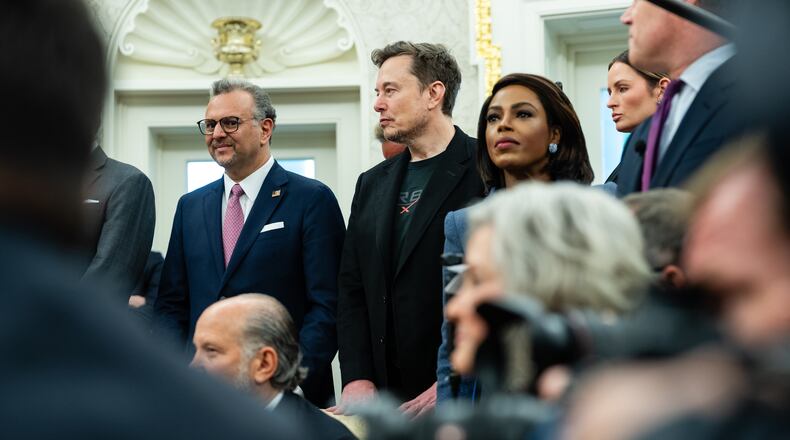“It’s time for Congress to do our part,” said U.S. Rep. Dave Taylor, R-Ohio. “We must actively codify DOGE’s findings to ensure the responsible use of taxpayer dollars.”
Taylor lives in Clermont County and represents much of southern Ohio.
Just this week, Musk himself expressed frustration over DOGE, saying President Donald Trump’s “big, beautiful bill” — a giant tax and budget package recently passed by the House that will increase the deficit by about $4 trillion over 10 years — would take the GOP the wrong way.
“I was disappointed to see the massive spending bill, frankly, which increases the budget deficit, not just decreases it, and undermines the work that the DOGE team is doing,” Musk told CBS News in an interview.
As the Senate starts work next week on the GOP plan, there are already calls to add more spending cuts than what was approved by the House before Memorial Day.
“Hopefully, the Senate will succeed where the House missed the moment,” said Rep. Warren Davidson, R-Troy, who was one of two House Republicans to vote against the Trump-backed budget bill.
“This bill was rushed to the floor when it should have been fixed,” Davidson said about how it adds more red ink for Uncle Sam.
This week brought a number of calls from GOP lawmakers for the White House to submit a special package of budget cuts known as a “rescission.” That operates under expedited rules which don’t allow a Senate filibuster.
Back in mid-April, the White House promised that it would send up a $9 billion package of cuts targeting foreign aid and public broadcasting. But that never materialized, leading to a bevy of GOP complaints.
“We should be voting on DOGE cuts every day, every week,” complained U.S. Rep. Marjorie Taylor Greene, R-Ga.
“We have a Republican Congress, and to this day, we’re at the end of May — past Memorial Day — and not one cent in DOGE cuts have been implemented by the Congress,” said Republican Gov. Ron DeSantis of Florida.
Musk initially claimed his DOGE efforts would save the feds as much as $2 trillion. Then it was $1 trillion. The latest estimate of savings is $170 billion, though many in Congress aren’t sure it will be anywhere near that amount.
About the Author
